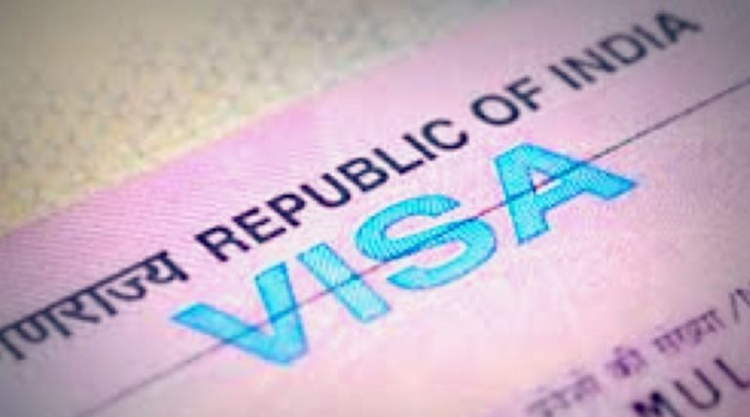As the Indian operations of European companies grow, foreign shareholders often struggle with how best to finance the operations, given India's restrictive regulations. We therefore cover three strategic options for financing your subsidiary in India.
European companies in India have 3 options to finance their subsidiary
1. Share Capital
You can raise capital by issuing additional shares in your Indian company. Increasing share capital is a relatively sustainable and institutionalized way to grow the Indian subsidiary. Moreover, it signals to the outside world that the parent company is serious about developing the subsidiary's services or products in India.
There are two drawbacks to this route. Issuing new shares is a bureaucratic and time-consuming process and thus cannot be arranged at short notice. Thus, in the event of acute cash flow problems, it offers no solace. It can also affect ownership of the company, especially in joint ventures with Indian partners.
2. External Commercial Borrowing (ECB).
Your Indian subsidiary can borrow from the parent company in Europe, but this is only possible under the so-called External Commercial Borrowing construction (ECB). Applying for an ECB is a bureaucratic and time-consuming process, but it has a big advantage: the interest rate on an ECB loan to an Indian party is based on LIBOR + a premium of up to 300 basis points.
3. Bank loans
Indian Banks: Your subsidiary can apply for a loan from a local bank, but the enormously high interest rates rarely make this option attractive or feasible. Interest rates on credit from local Indian banks start at 10-12% and can easily exceed 15%. Only with a cash deposit as a guarantee can a lower rate be negotiated in some cases. In addition to sky-high interest rates, Indian banks routinely ask for collateral if you want to apply for a loan. To organize the paperwork with the bank, you need a local consultant. In addition, you pay the bank another administrative fee of 1% on average. With local banks, you can raise a maximum of 1-2 million euros this way.
If you need more capital, you can apply to several banks at the same time that can provide a loan as a consortium. Of course, this only makes obtaining the loan more complex and expensive.
International development banks: For projects supported by the Indian government, you can turn to development banks, such as IFC (World Bank) and the Asian Development Bank. In addition, Chinese banks may be an option, although these often impose the condition that the loan be spent on products or services from Chinese (state-owned) companies.
A comparison of the 3 financing options for your Indian subsidiary
| CONSIDERATION | SHARE CAPITAL | EXTERNAL COMMERCIAL BORROWING (ECB) | LOAN AT LOCAL BANK |
| Interest expense | Not applicable. | Maximum: 500 basis point + acceptable reference rate. 3-4% interest rate would be ideal based on our experience and can be justified as arm's length. | Flexible structure with fixed and variable interest rates that can be negotiated with the lending bank. The average interest rate is about 10%. |
| Other costs | There are legal and filing fees associated with issuing new shares. | Exchange rate fluctuations for borrowers and monthly compliance costs for reporting data to the Central Bank of India. | Costs related to corporate guarantees or letters of credit issued by foreign banks of the parent company. |
| For- charges | Benefit from Income Tax Act -20% + surcharge & Cess. | Benefit from Income Tax Act -20% + surcharge & Cess. | Not applicable. |
| Corporate Income tax | Parent company must pay tax in the country of establishment. Tax deduction for taxes paid in India is applicable. | Parent company must pay tax in the country of establishment. Tax deduction for taxes paid in India is applicable. | Not applicable. |
| Payment terms | Repayment of capital occurs upon business termination. Dividend payment according to the rules of the Indian entity. | Average maturity requirements (ranging from 3 to 10 years) must be met, which provides flexibility in terms of repayment of interest and principal. | Strict payment terms and defaults affect credit scores and interest rates for future loans. |
| Regulatory considerations | Foreign lenders must meet tax liability through PAN registration, Form 10F and filing of Indian tax returns (only in case of dividend income). | Foreign lenders must meet tax liability through PAN registration, Form 10F and filing of Indian tax returns (only in case of dividend income). | Less hassle with regulations because established procedures are used. |
Special guide for CFOs with operations in India
India can be a challenging country for European CFOs. Therefore, to give you a better understanding of the complex tax and financial system that every CFO in India faces, consulting firm IndiaConnected has created an insightful guide that addresses the most frequently asked tax questions.
We can, of course, support you at all times in such matters. From choosing the right financing option to helping you apply for ECB or bank loans, so you can always focus fully on your business in India. Contact us here.




